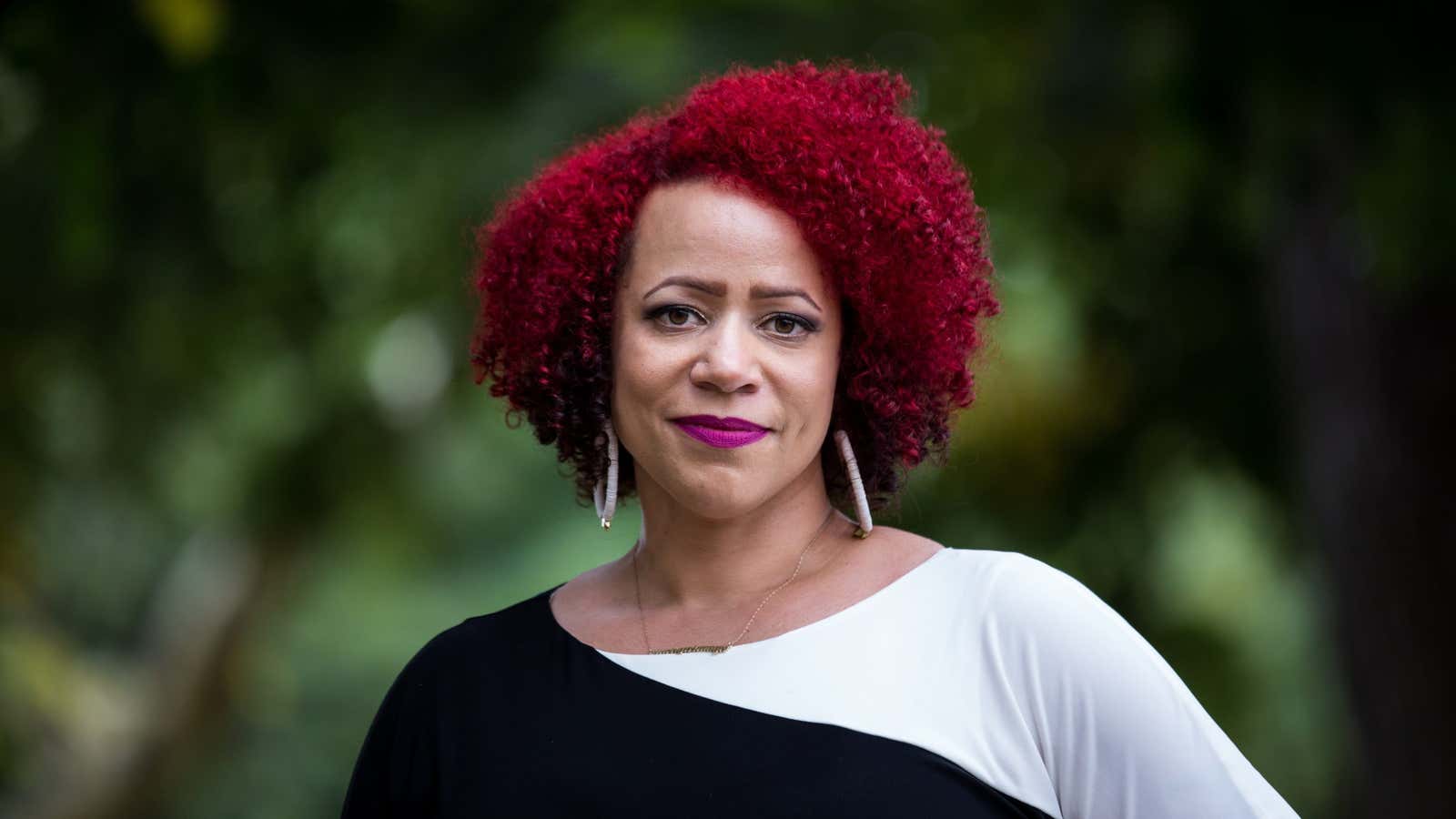The University of North Carolina’s board of trustees made a big mistake in denying journalist Nikole Hannah-Jones tenure. They eventually reversed the decision, which had ignited a national controversy over the role of race and politics in their treatment of Hannah-Jones, a Pulitzer Prize winner who led the New York Times’ landmark report on the lasting impact of slavery in the US, the 1619 Project. But the damage already had been done.
And so it made perfect sense when Hannah-Jones announced on July 6 that she had declined UNC’s belated tenure offer in favor of joining the faculty at Howard University, a historically Black college where she will serve as the Knight Chair in Race and Journalism—a tenured position, naturally. She’ll also be founding Howard’s Center for Journalism and Democracy, which aims to work across historically Black colleges to equip young journalists with “the investigative skills and historical and analytical expertise needed to cover the crisis our democracy is facing,” according to a statement from Howard.
“It’s not my job to heal the University of North Carolina,” Hannah-Jones said in an interview with CBS This Morning. “That’s a job of the people in power who created this situation in the first place.”
Her decision sheds light on the pressure that some Black people feel to help reform majority-white workplaces—and to the radical possibilities of pursuing an alternative path.
Why Nikole Hannah-Jones said no to UNC
While the board did not offer an explanation for their initial withholding of tenure, conservative criticism of the 1619 Project and opposition expressed by one of UNC’s major donors, newspaper publisher Walter Hussman, seem to have played a role.
Hussman, who pledged $25 million to the journalism school where Hannah-Jones was hired, denies pressuring the university over its tenure decision. But he has admitted to sending emails to at least one trustee, as well as a number of UNC leaders, expressing concerns over Hannah-Jones and the 1619 Project.
“It’s pretty clear that my tenure was not taken up because of political opposition, because of discriminatory views against my viewpoints, and I believe my race and my gender,” Hannah-Jones said in the CBS interview. In her statement released on July 6, she suggested revelations about Hussman’s apparent sway over the board influenced her decision to turn down UNC, writing,”How could I believe I’d be able to exert academic freedom with the school’s largest donor so willing to disparage me publicly and attempt to pull the strings behind the scenes?”
Hannah-Jones’ choice to say no to UNC, then, wasn’t about the unexplained delays in the tenure offer (though that certainly didn’t help). It was about the fact that the process convinced her she could not trust her employer to communicate with her transparently about its decisions, nor judge her work on its merits. It’s a situation to which many people who’ve experienced mistreatment at work—particularly as a result of racism or other forms of bias—can probably relate.
Black professionals redefining success
At least as important as Hannah-Jones’ reasons for saying no to UNC are her reasons for saying yes to Howard. As she told CBS This Morning:
“I have been very very thoughtful about my decision to go to a historically black college. What I’ve decided is since the second grade when I started being bused into white schools, I spent my entire life proving that I belong in elite white spaces that were not built for black people. I just decided—you know I got a lot of clarity through what happened with the University of North Carolina—I decided I did not want to do that anymore. That black professionals should feel free—and actually perhaps an obligation—to go to our own institutions and bring our talents and resources to our own institutions and help bring them up as well.”
In other words, Hannah-Jones’ choice to teach at a historically Black college is also an act of resistance—a rebuke to the idea that Black professionals can do the most good by working to change racist cultures from within, or that they ought to aspire to join elite, majority-white organizations in the first place. After all, while laws now bar universities and workplaces from blatantly discriminating against people on the basis of characteristics like race, sex, or disability, elite institutions nonetheless tend to define themselves by the act of exclusion, promoting the idea that only a narrow subset of the population possesses the qualities of excellence necessary to gain admission.
Within the view that the world is fundamentally inegalitarian, it would be no surprise to find that prejudice often thrives.
An alternative path toward diversity
Of course, Howard is itself a prestigious university—but one with a very different history. As Hannah-Jones explains in her statement: “[I]nstead of fighting to prove I belong at an institution that until 1955 prohibited Black Americans from attending, I am instead going to work in the legacy of a university not built by the enslaved but for those who once were.”
Bringing about a better work culture means not just overhauling troubled organizations, but strengthening the ones that are already committed to equality.
In choosing Howard, then, Hannah-Jones has highlighted an alternative way by which contemporary work culture can be transformed. It’s still necessary for historically white, homogenous universities and companies to prioritize hiring and promoting people from a diverse range of backgrounds. But when Black people and other people of color channel their energy and talent toward institutions founded upon principles of equality, they also chip away at the dominance of problem-ridden institutions that continue to have so much societal sway.
